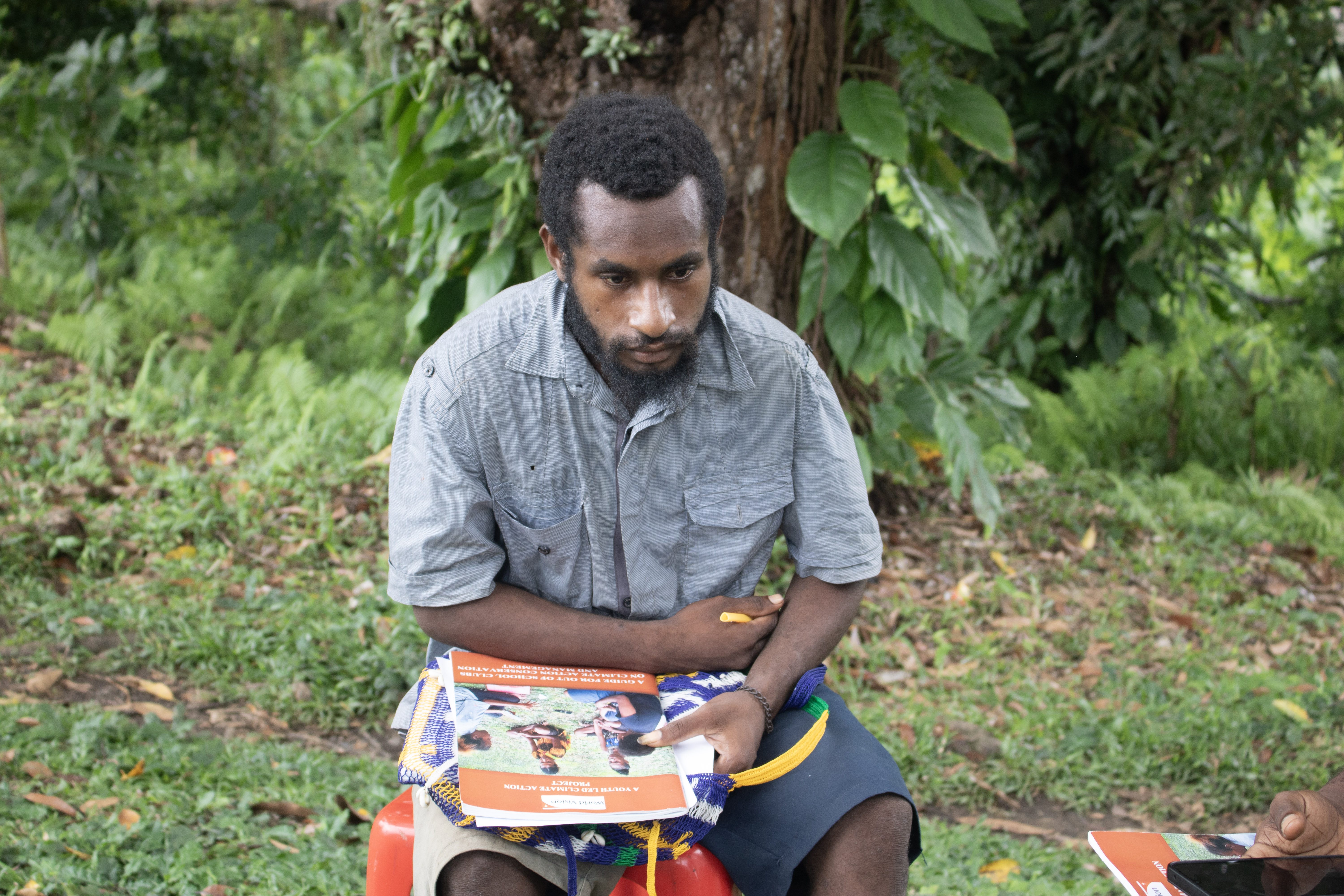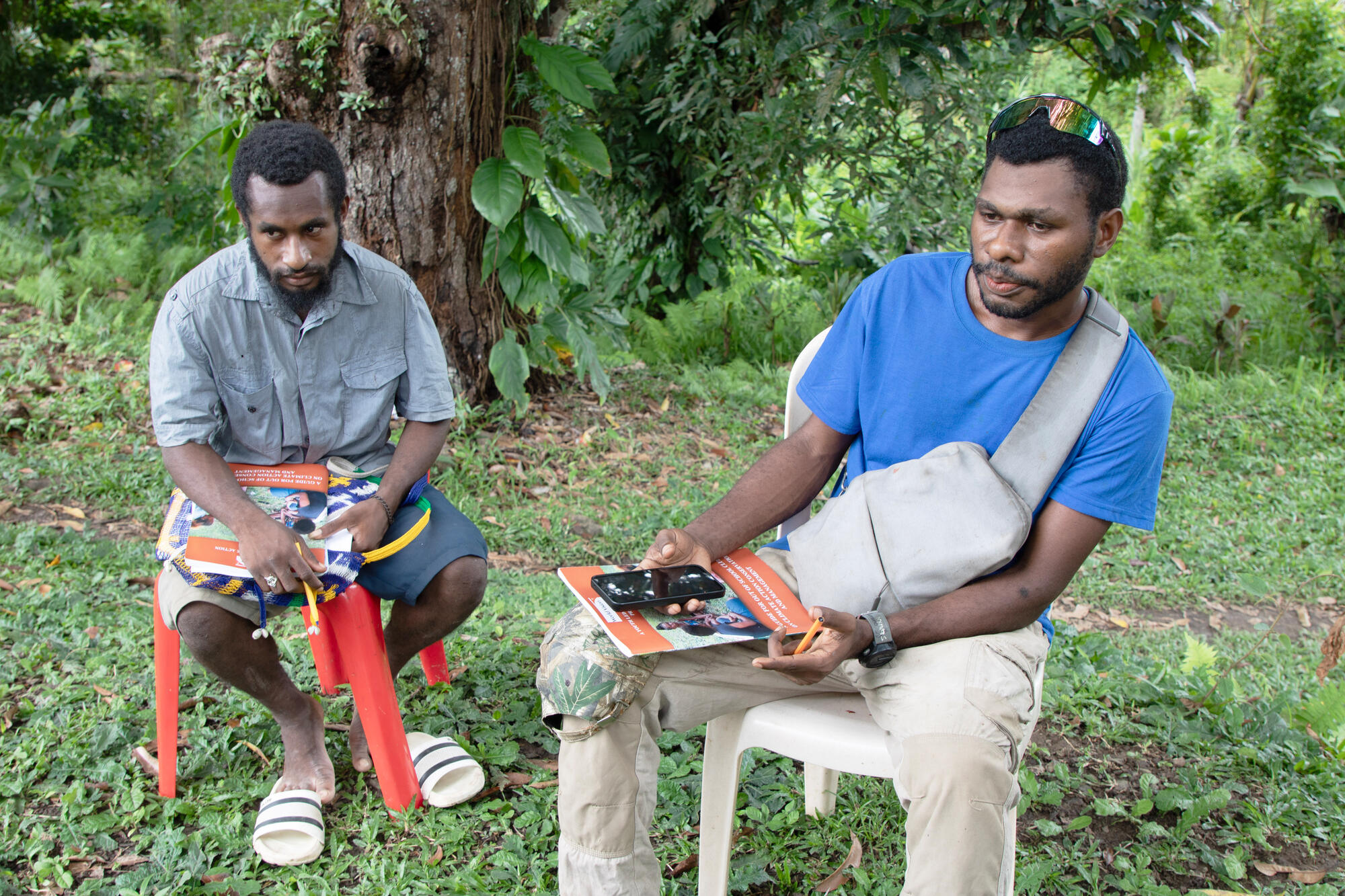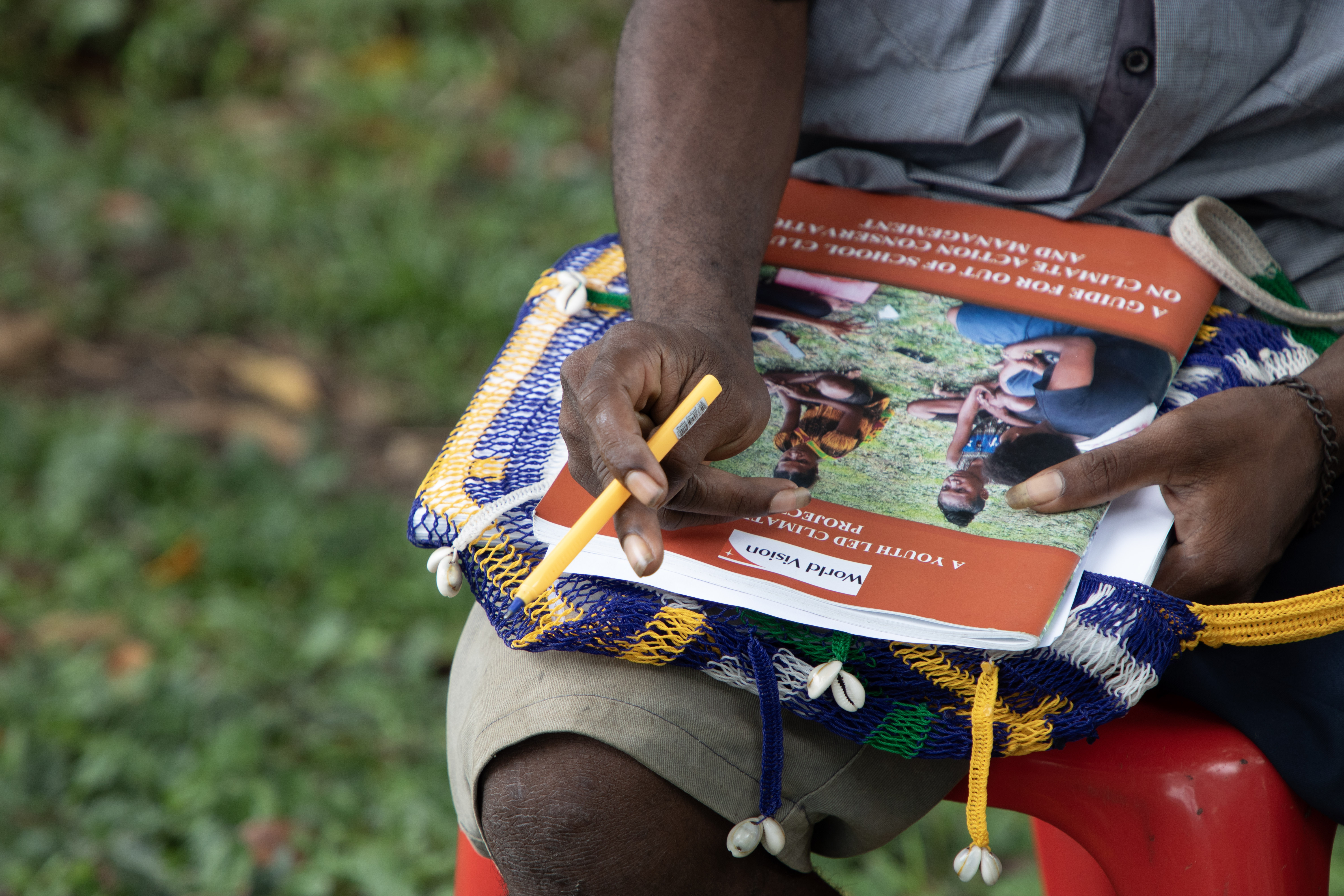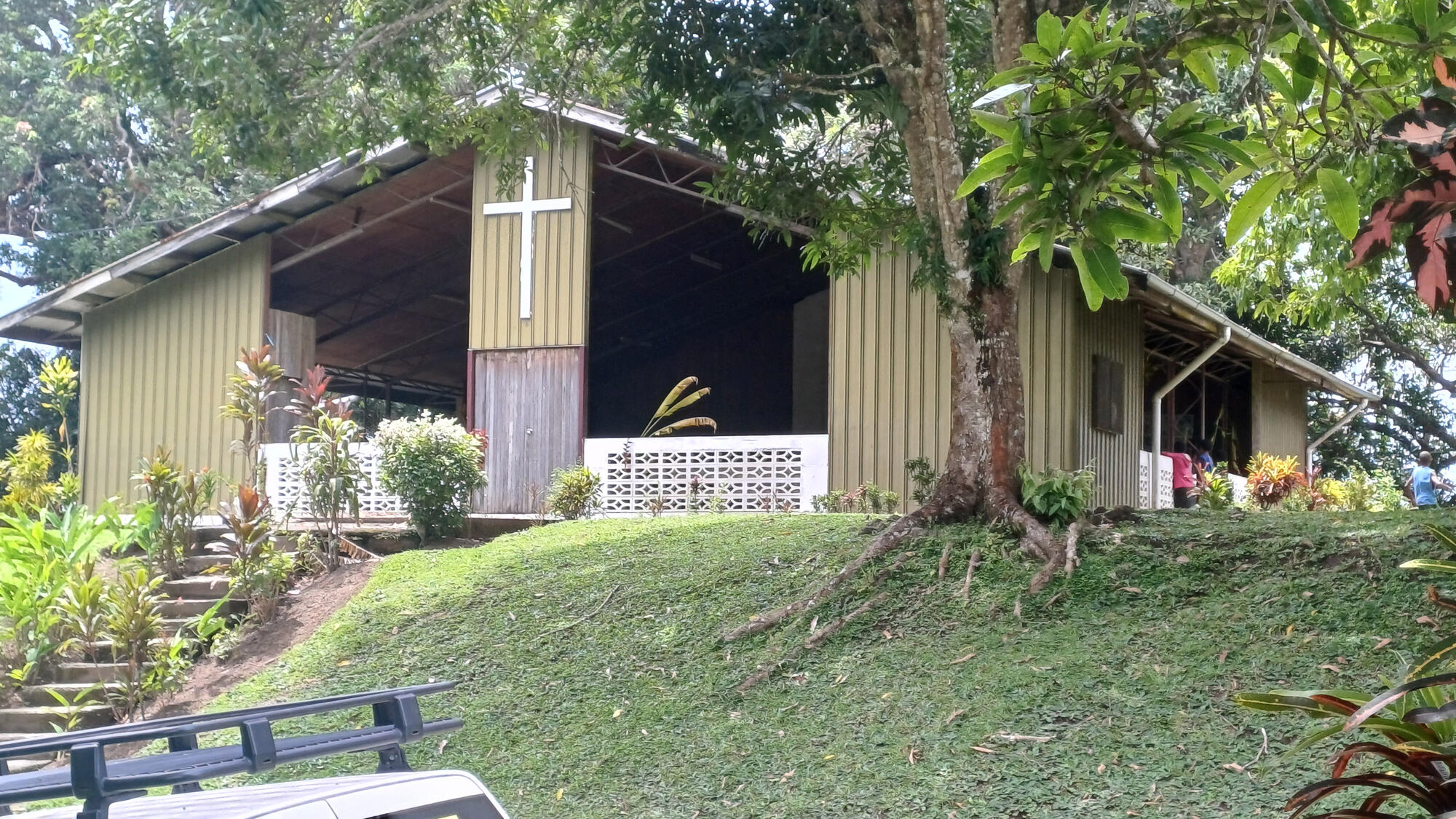Youths Advocate for Climate Change in Riwo and Nagada Communities in Madang
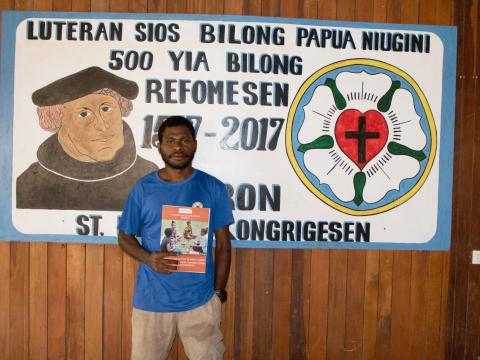
Tuesday, May 6, 2025
Clause Wali is a youth from the Saint Martin Lutheran Youth Congregation at Amron Station near Riwo, Madang Province.
The twenty-four-year-old speaks with a confident tone reflective of the youth leader role that he has been propelled into through his engagement with the World Vision ‘Empowering Youth Led Climate Action Project in Riwo and Nagada communities.’
The Youth Led Climate Action Project is funded by the Korean Government and aims to empower and equip youths with training on identifying risks of natural disasters triggered by climate change and develop plans within their communities to mitigate and reduce the spread of climate change impacts through locally led resilient activities and sustainable agricultural farming practices for each individual context. This project also empowers youth to speak out and advocate on climate change resilience in their communities, which previously they didn’t have the opportunity and support of adults to express how they felt about climate change.
I am actually supporting our Youth President and acting president right now. In the president’s absence, I am taking the lead in one of our major tasks to conduct community consultation and assessment on climate change vulnerability here at Amron station. This will help us measure and understand our community’s social, cultural and demographic vulnerability so that we can create action plans to mitigate them.
Clause then explains why he found the project engaging and interesting and sought to join and engage in the project through the St. Martins Lutheran Church Youth Group.
‘For me, climate change means that although we have expected seasonal changes (wet and dry) that we are used to, our parents and communities must adapt to develop gardening plans according to seasons. Now we are experiencing more and more as well as extended periods of dry seasons that’s really affecting us. Amron station is on top of the mountain, so when it is dry season, we have very limited water access. This means that the vulnerable, and elders have to walk longer distances to access water,” Clause explains.
He continues, “when the wet season comes, well, we have plenty of water, but then because of the road access to the station, our road access is affected and sometimes inaccessible altogether and so we have to carry cargoes up to the station as vehicles are unable to access the station,” he motions to the steep road through which our vehicle drove up to park.
“For example, our staple foods are affected by climate change and our diets as well,” he explains.
Amron station is located at the highest peak near Riwo. The station belongs to the Lutheran Church which acquired it in the late 1960’s – 1070’s when they first arrived in Madang to spread the gospel of the Good News.
Clause is visibly excited in his response when asked how receptive the community was of the project and the training they received.
“We received 2 days of club/youth leaders training from World Vision on how to conduct consultation and assessment on our communities in March and when we returned to the station we started undertaking ‘one on one’ interview’ s with our community members here at the station on Climate Change and sustainable agriculture and how this affects all of us. Once we complete the interviews and surveys, we will then develop a climate action proposal which the WV project will support us with small grants at which our youth group will then use for undertaking activities associated with addressing climate change resilience,” he says.
Sitting quietly all the while next to Clause is Manuel.
Manuel is another youth member of the St, Martin Youth Group and currently a year 10 student at the Good Shepherd Lutheran High School nearby.
Manuel also echoes the same sentiments as those of Clause.
“Why I became interested in joining this youth led climate change group, the problem of climate change affects everyone. By joining the project through the youth group, I can learn about some ways in which I can also support the community here and in my own village to adapt and also reduce the effect on our livelihoods,” Manuel explains.
“I understand that climate change occurs because of the overuse of resources in our natural environment and degradation of the natural flora and fauna and over population without adequate resources to cater for the increasing population, he says.
Then he recounts a personal recollection from his father’s place in Madang called Sogeram. He says that where his father is from, there is a logging company that logs very heavily in the area. His first-hand experience was seeing that the effects of the logging which have uprooted the natural environment, his dad’s people are hunters and gatherers and now all the animals they hunted have fled because their natural habitat has been destroyed and the soil has also lost its fertility.
Manuel is encouraged and hopes that after he completes his education, he can also take the knowledge gained in the project back to his dad’s people at Sogeram and conduct awareness in the community and engage meaningfully with the logging firm to preserve and conserve some natural habitats and rainforests for future generations and thus reduce the effects of climate change in his own community.
Both young men are optimistic and as the community has thus far been receptive to their engagements through the project and awareness and interviews, they are fueled to continue their work.
Clause is optimistic, “in the future, climate change will become a bigger problem that it is now. The sun will grow hotter, and it seems to be getting worse as the years go by. The project is helping us to understand what climate change is, and what each of us can do in our way to help build resilience in our communities by sustainable agriculture, mixed cropping and crops that are adaptable to climate change. But it will need some concerted effort from us Youths with support from the community here and hopefully we can have some effect to slow the process and adapt whilst it slowed down,” is his profound parting remarks.
